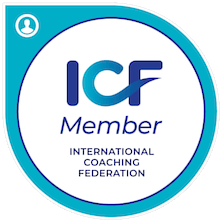“Beloved, I pray that you may prosper in all things and be in health, just as your soul prospers” (3 John 2).
It is God’s will that you prosper in all things. His plan is for you to be prosperous in all areas of your life. The Bible tells us that God takes great pleasure when his children are prosperous (Psalms 35:27). We read further in 3 John 2 that it is also God’s will that we be in health. In my view, walking in good health is far more inspiring than being healed from an illness. More importantly, our prosperity and health is connected to the same degree and in the same measure as the prosperity of our soul.
In scripture, the health of your body cannot be separated from the mind and spirit. After all, we are made up of body, mind, and spirit. I Thessalonians 5:23 says that we were created as three-part beings.
One way of maintaining good health is to ensure that your blood pressure is always within the normal range, which is 120/80. One of the best ways to do this is to monitor sodium intake.
Main Source of Sodium
One main source of sodium is table salt. Sodium controls the fluid balance in our bodies and maintains blood volume and blood pressure. Although the body needs sodium in order to properly function, the required amount is small compared to the amount the average adult takes in daily. This required amount is about 1/3 teaspoon.  Because sodium is so prevalent in the average adult’s diet, issues with blood pressure are common.
Because sodium is so prevalent in the average adult’s diet, issues with blood pressure are common.
Blood pressure is the force of blood against artery walls. It is recorded as two numbers: systolic pressure (when the heart beats) over diastolic pressure (when the heart relaxes between beats). Both numbers are important. Blood pressure rises and falls during the day. But when it stays elevated over time, then it is called high blood pressure. High blood pressure is dangerous because it makes the heart work too hard, and the high force of the blood flow can harm arteries and organs such as the heart, kidneys, brain, and eyes. It may also cause fluid retention, which could lead to swelling of the legs and feet or other health issues. High blood pressure often has no warning signs or symptoms. Once it occurs, it usually lasts a lifetime. If uncontrolled, it can lead to:
- Heart disease
- Kidney disease
- Stroke
- Blindness
Good News! High Blood Pressure Can Be Controlled With These Steps:
- Follow a healthy eating plan devised by a dietitian which includes foods lower in sodium and rich in potassium.
- Maintain a healthy weight which is positively associated with a normal blood pressure.
- Be moderately physically active on most days of the week.
- Get clearance from your doctor if you drink alcoholic beverages
- Get adequate rest and relaxation.
- Take prescribed medication as directed if you have high blood pressure.
- Keep your schedule appointment with your doctor.
While each step alone may lower blood pressure, following a healthy meal plan that has reduced sodium content in combination with these other steps will give the biggest benefit.
In order for one to successfully follow a meal plan restricted in sodium, one must be knowledgeable about the following sub-topics:
Other Sources of Sodium
Many foods that do not taste salty may still be high in sodium. Large amounts of sodium can be hidden in canned, processed, and convenience foods. Sodium can also be found in many foods that are served at fast food restaurants. Sodium is found naturally in foods, but a lot of it is added during processing and preparation.
- Many foods naturally contain sodium, but this accounts for only 10 percent of the typical total sodium intake
- Another 10 to 15 percent comes from salt added to foods during cooking and at the table.
- The majority of sodium in our diet, up to 75 percent, comes from the sodium used in processed foods, as stated by the American Heart Association.
- Manufacturers use sodium as a preservative to prevent the growth of food-borne microorganisms and as a stabilizer and flavor enhancer.
Foods that Help Reduce Hypertension 
Many people focus on reducing salt in their diet to fight hypertension, but many forget that potassium rich foods can help lower blood pressure and help hypertension. Potassium, another mineral essential to good health, works with sodium to maintain the body’s water balance and regulate blood pressure. “Cutting down on sodium and eating more potassium-rich foods could prevent deaths caused by heart disease and stroke, according to to three recent studies published on BMJ.com.” Good sources of potassium include banana, citrus fruit, spinach, and root vegetables like potatoes, especially with the skin on.
The American Heart Association recommends that persons with hypertension or at risk of developing hypertension lower their sodium intake to 1,500 mg (1/3 teaspoon salt) or less per day. Using liberal amounts of fresh and dry herbs can enhance the flavor of foods while keeping the salt at a minimum.
Sources:
Consumer Reports on Health. Volume 35 Number 7
http://www.blood-pressure-diet.com/potassium-blood-pressure.php



